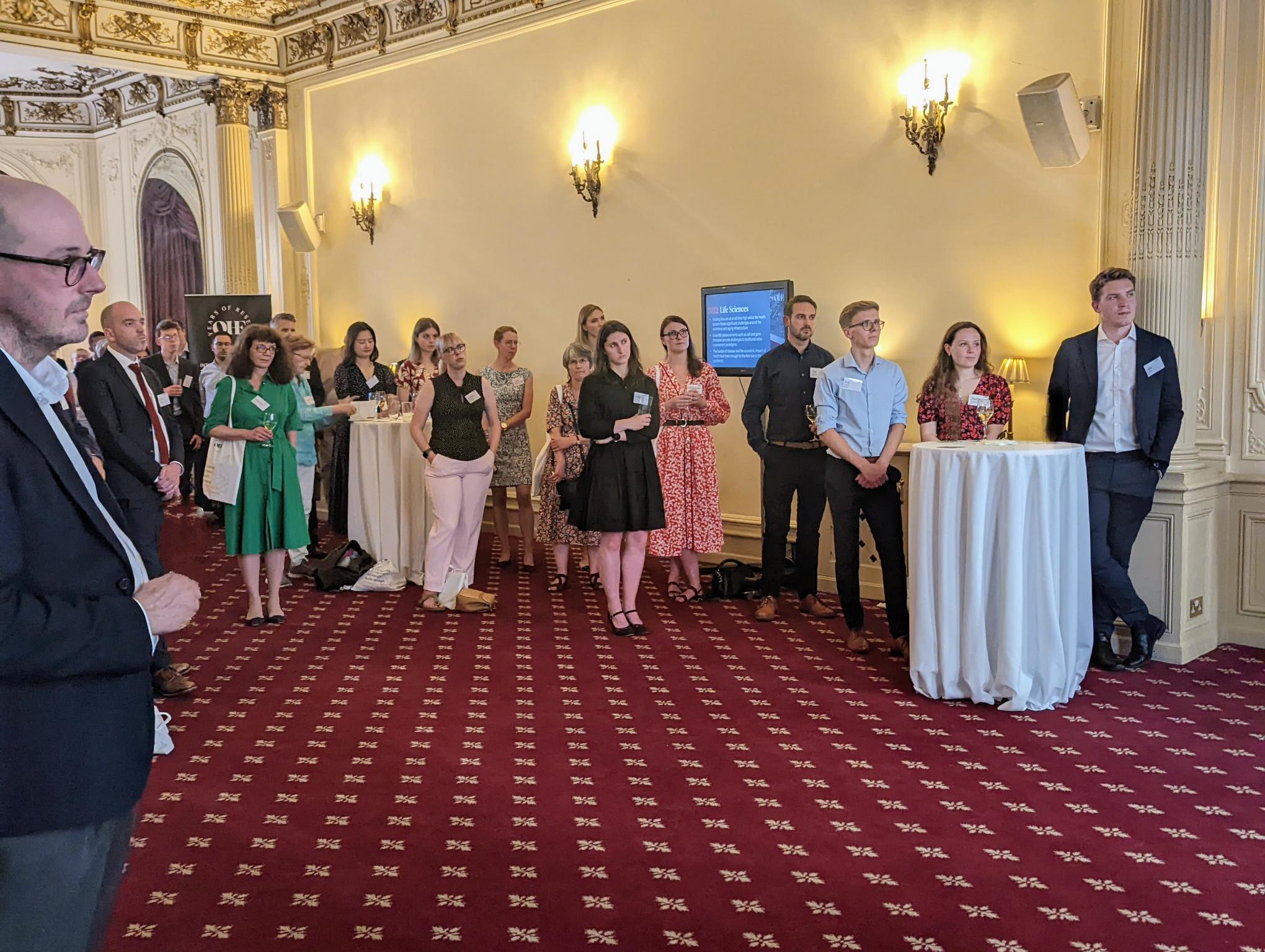Unlocking the Value of Combination Therapies



To celebrate its 50th Anniversary, OHE held a conference this week, The Challenges and Economics of Drug Development in 2022, which explored the likely evolution of the key aspects of drug development over the next ten years. The conference was…
To celebrate its 50th Anniversary, OHE held a conference this week, The Challenges and Economics of Drug Development in 2022, which explored the likely evolution of the key aspects of drug development over the next ten years. The conference was attended by over 100 participants from the public and private sectors; speakers and panellists included leaders from drug regulatory agencies, health technology assessment (HTA) groups, payers, the pharmaceutical industry, private foundations, and academia.
To celebrate its 50th Anniversary, OHE held a conference this week, The Challenges and Economics of Drug Development in 2022, which explored the likely evolution of the key aspects of drug development over the next ten years. The conference was attended by over 100 participants from the public and private sectors; speakers and panellists included leaders from drug regulatory agencies, health technology assessment (HTA) groups, payers, the pharmaceutical industry, private foundations, and academia.
The conference identified two core themes that will define the challenges for drug development in the next ten years: new, evolving technologies and more difficult disease targets.
Dramatic advances in technology are having a critical impact on all aspects of drug development, from identification of areas for research through improving the value of a new product once on the market. At every step in the process, the ability to collect and analyse data of increasing complexity and sophistication continues to grow and change. The new technologies are producing results already; for example, clinical trials in some therapeutic areas are becoming more efficient through the use of diagnostic and monitoring tools that help select the most appropriate patients and better capture their responses to treatment. The same approach is beginning to have practical application after approval as well, as personalised medicine (also called “stratified” or “precision” medicine) enhances the prospects for treating patients more effectively and safely. At the same time, however, many diseases with great unmet medical need today are very difficult to understand and to treat; for example, cancers, autoimmune diseases and neurological diseases such as Alzheimer’s.
The speakers and panellists generally agreed that the most important advances in treatment over the next decade will be through the development and use of biopharmaceuticals, often with companion diagnostics and/or other monitoring technologies. Indeed, biologics already account for about a third of the drugs now in R&D in the biopharmaceutical industry, with that share expected to grow. Such drugs tend to be riskier to develop and more expensive to produce than “traditional” drugs. To encourage continued innovation and better spread risk, new ways of collaborating across stakeholders will be crucial. This will include a broad range of interests: those involved in R&D — companies, research centres and, in some cases, private foundations and other funders — as well as drug regulatory agencies, HTA bodies, payers and patient groups.
Specific observations and recommendations included the following.
The ultimate goal over the next decade, then, is to reduce uncertainty and cost in drug development to encourage innovation for the toughest diseases and at an affordable price.
Editor's note: The published proceedings may be downloaded by clicking here.
An error has occurred, please try again later.
This website uses cookies so that we can provide you with the best user experience possible. Cookie information is stored in your browser and performs functions such as recognising you when you return to our website and helping our team to understand which sections of the website you find most interesting and useful.
Strictly Necessary Cookie should be enabled at all times so that we can save your preferences for cookie settings.
If you disable this cookie, we will not be able to save your preferences. This means that every time you visit this website you will need to enable or disable cookies again.
This website uses Google Analytics to collect anonymous information such as the number of visitors to the site, and the most popular pages.
Keeping this cookie enabled helps us to improve our website.
Please enable Strictly Necessary Cookies first so that we can save your preferences!



